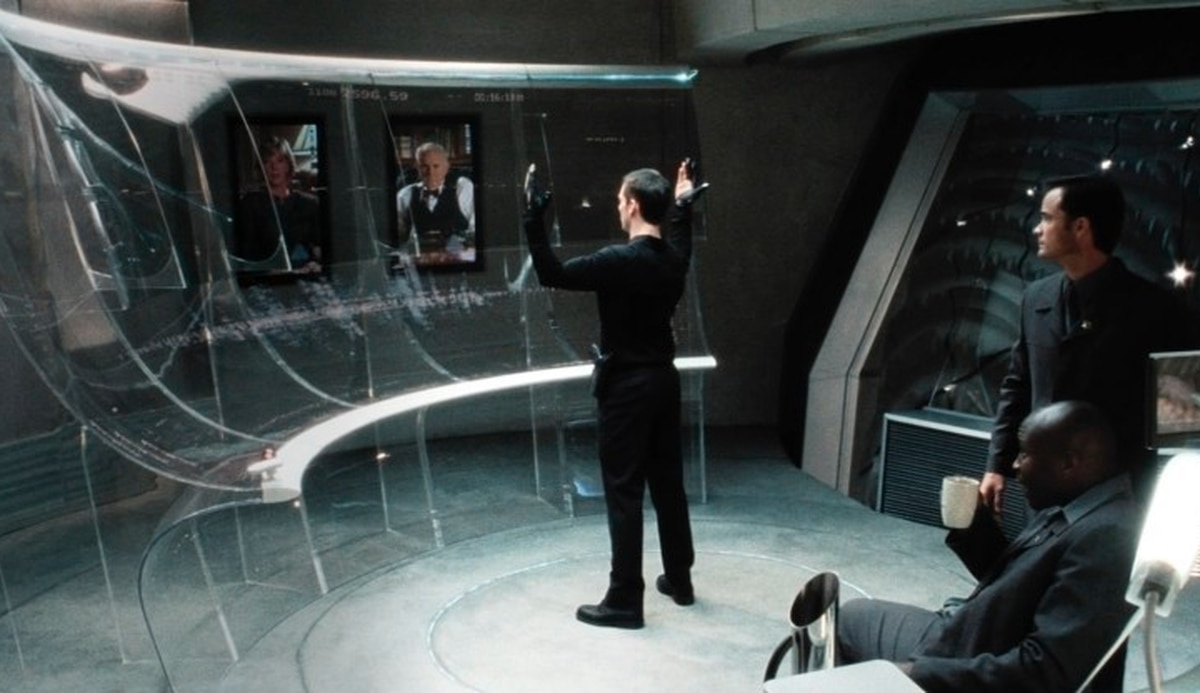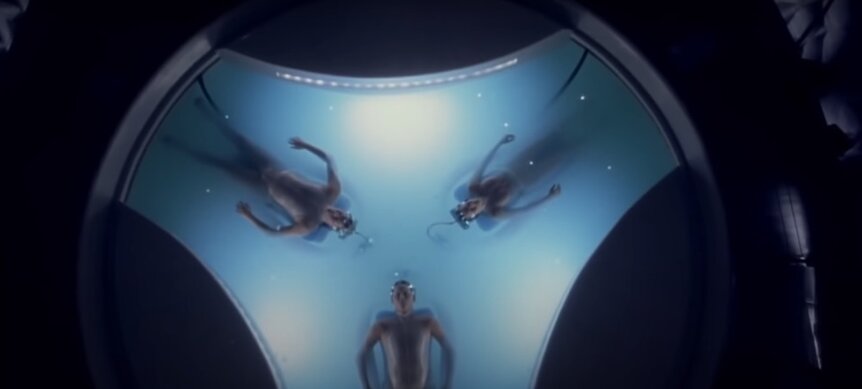Create a free profile to get unlimited access to exclusive videos, sweepstakes, and more!
Predicting crime: The science behind 'Minority Report'
What are you going to do next?

It's been 21 years since Minority Report, which is now streaming on Peacock, hit theaters and brought the notion of pre-crime to movie-going audiences around the world. Based on Philip K. Dick's novella The Minority Report, the story centers on three clairvoyant humans known as precogs, capable of predicting violent crime before it happens. John Anderton (Tom Cruise), the pre-crime chief who is tasked with stopping the would-be crimes the precogs predict, is himself accused of a murder he hasn't committed ... yet.
RELATED: Stream Minority Report right now on Peacock.
As Anderton evades the law, including his own coworkers, in an attempt to clear his name, audiences are asked to consider the morale calculus of convicting people in advance of crimes, even if it means saving lives. So far at least, it's not a question we've actually had to consider. The laws as they are written today require you to have committed a crime or be in the process of committing a crime in order to be held liable — at least that's how things are supposed to work — but might we someday reach a point where our ability to predict human behavior stops crimes before they happen?
CAN HUMAN BEHAVIOR BE ACCURATELY PREDICTED?
In theory, maybe? It kind of depends on what version of reality you subscribe to. Probably we can look at demographics, family histories, and life experiences, and predict with some level of confidence what a person is statistically likely to do, but that's not the same as saying that John Anderton will commit a murder on a specific date in 2054.
In order for precrime to really grab hold, we'd need a system for reliably predicting precisely what a person will do at any given time. Some philosophers take this for granted, at least hypothetically, as a consequence of hard determinism.
Modern science is built on the foundation that things in the natural world are predictable. The laws of nature act on bodies like stars and planets and send them whirling about their celestial planes on measurable, predictable paths. We can predict eclipses far into the future, down to the minute and we can predict orbital paths of space probes as they maneuver between planets on their way out of the solar system. That's because we have a decent understanding of the forces they'll encounter along the way.
Determinism presupposes that human beings are no different, at their core, than a ball bouncing down a hill. Throw someone at any situation at a given time, speed, and with a lifetime's worth of prior causes and experiences, and they'll react in ways which are determined by those prior causes and experiences. The hard determinist suggests that human behavior is unpredictable today not because it's fundamentally so, but because we don't have the computing power — either inherently or technologically — to crunch the numbers on how they'll react.
Given a sufficiently powerful computer, or a set of precogs, and you could know the future in quite the same way as we know the past. Indeed, such a worldview suggests that from the moment of the Big Bang, the universe has played out, and will continue to play out, in the only way it ever could have. It's almost as if existence is reading out a script and each of us is only a player in a pre-planned drama 14 billion years in the making.
Of course, quantum mechanics throw something of a wrench in this way of thinking. There appears to be a certain amount of uncertainty built into nature when you drill down to the very small. However, there is an argument to be made that the quantum gap in our understanding is just that, rather than true randomness. Whether that is borne out remains to be seen. It might also be true that quantum randomness fades away in macroscopic systems, as certainly seems to be the case when we look at stellar systems and galaxies. The question then becomes which side of the boundary human beings reside in.
If we accept that we are purely material objects — that we are not fundamentally different from anything else in the universe, however chemically complex we may be — then it stands to reason that our actions are as predictable as anything else. That would mean that, eventually, we may need to reckon with predicting crime and all of the moral quandaries that come with it.
PREDICTIVE POLICING IN THE REAL WORLD
In the absence of a computing entity or a trio of mutated human psychics capable of predicting our every action, law enforcement agencies are turning to algorithms, and they are not perfect!
Many police precincts around the United States are relying on predictive algorithms to tell them where to patrol and what they might expect on their beat. As reported by Science, policing entities are increasingly relying on computer programs to analyze the patterns of crime in their neighborhoods as a means of determining where crime might happen next.
Fundamentally, this makes a certain amount of sense, if crime exists in a particular area, then it's likely to propagate outward from there. Verbal scuffles tend to evolve into violent altercations, but there's likely a gap in the way we calculate these sorts of crimes. Prior observations have shown exactly what we expect that crime begets crime. Where there's one crime, there's more than likely to be another.
The reality is, however, that biases inherent in our every day lives persist in our computer programs. Computer algorithms are only as good as the data we feed into them, and studies have shown that they carry and sometimes exacerbate racial and demographic biases, whether we consider them consciously or not.
At present, police entities are using algorithms to identify not just potential criminals, but also potential victims and they struggle to differentiate between the two. As mentioned in the above study, effectively predicting crime would require a 1,000-fold increase in predictive power before it could reliably pinpoint crime.
The fact is that we can't reliably differentiate between victims and perpetrators and until we can, our predictive algorithms are less than worthless, particularly when we consider the racial and class biases inherent in our calculations. While predicting crime might be the future of our society, it's only as good as the inputs we provide, and those are questionable at best.
Stream Minority Report now on Peacock.




























